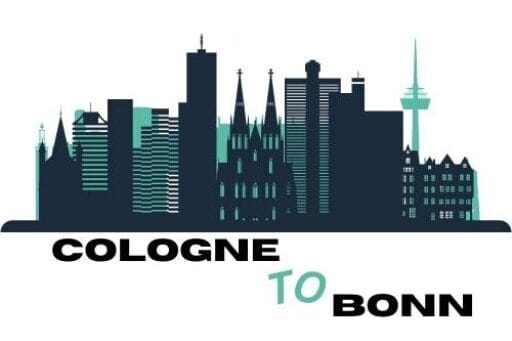Bonn in August: Weather Info & Travel Tips
*Cologne-to-Bonn contains affiliate links and is a member of the Amazon Services LLC Associates Program. If you make a purchase using one of these links, we may receive compensation at no extra cost to you.
WONDERING, WHAT’S THE BEST TIME TO VISIT BONN, GERMANY?
You’ve landed on the right article! I lived in Bonn and I’m going to tell you everything you need to know about visiting Bonn in August.
From the weather in Bonn in August, to the best things to do in Bonn in August and even some Bonn travel tips for August — it’s all here. Ready to discover everything you need to know for your Bonn August trip? Let’s get to it!
Bonn in August: Weather Info & Travel Tips
Weather in Bonn in August
In Bonn, August marks the end of summer and is characterized by warm temperatures that range from a minimum of 13.3°C (55.9°F) to a maximum of 23.3°C (73.9°F).
Average temperatures in Bonn in August
The average temperatures in Bonn during August range from a low of 13.3°C (55.9°F) to a high of 23.3°C (73.9°F).
- Average high temperature in Bonn in August: 73.9°F (23.3°C)
- Average low temperature in Bonn in August: 55.9°F (13.3°C)
- What are the hottest months in Bonn Germany? July – August
- What are the coldest months in Bonn Germany? January – February
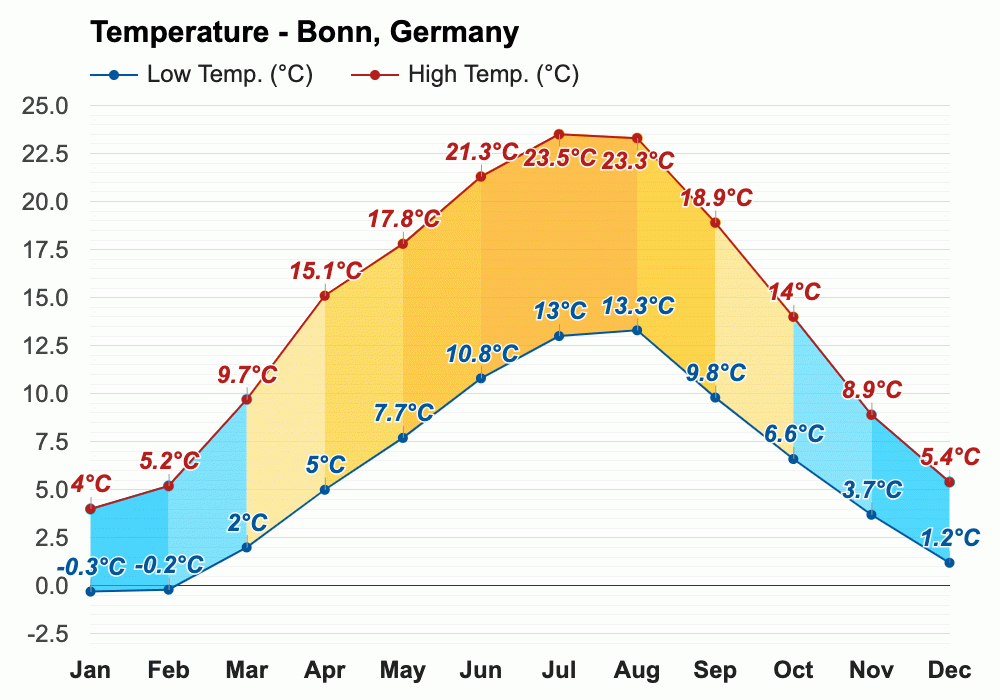
Does it snow in Bonn in August?
No, it does not snow in Bonn in August. Snowfall is extremely rare in Bonn during any month of the year, and August is typically a warm month with no snow.
Is there rain in Bonn in August?
Yes, there is rain in Bonn in August. August is actually the month with the most rainfall in Bonn, with an average of 14.3 rainy days and a total precipitation of approximately 33mm (1.3 inches). So, it is likely that there will be some rain in Bonn during August.
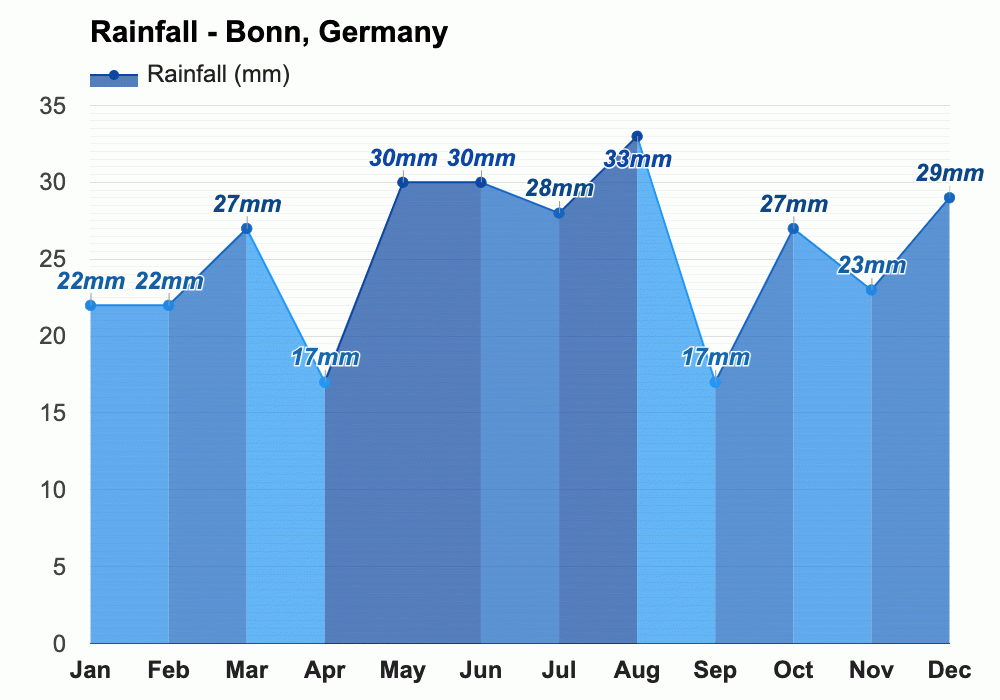
Does it rain all day in Bonn in August?
It is not common for it to rain all day in Bonn in August. While August is the month with the most rainfall in Bonn, the rain usually comes in the form of short-lived showers that last for a few hours at most.
There are still plenty of sunny and dry days in August, so it is not likely to rain all day every day.
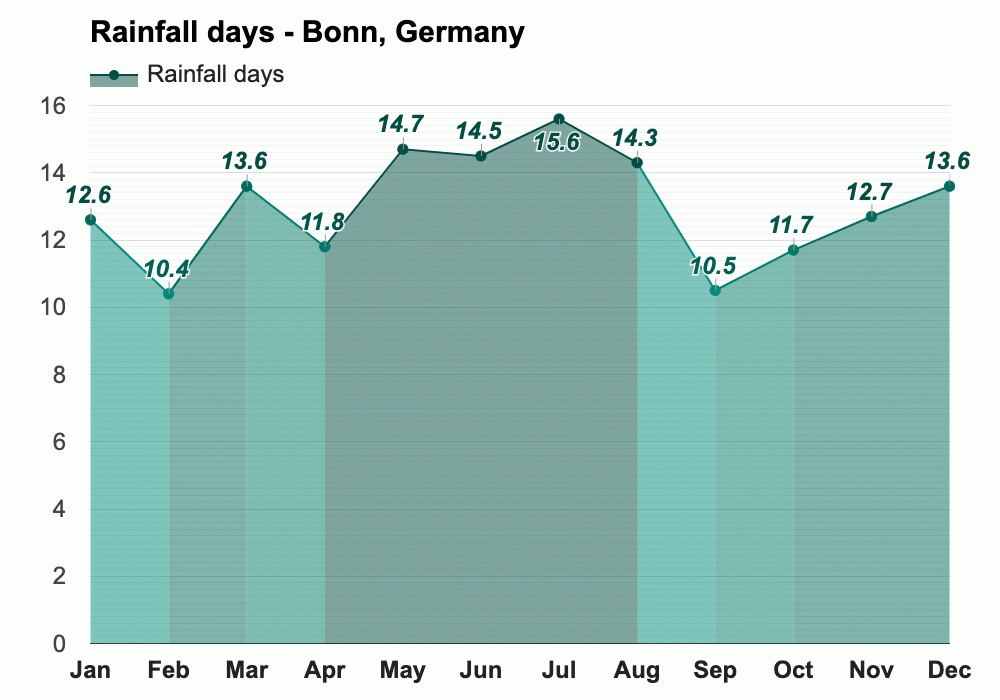
Is there sunshine in Bonn in August?
Yes, there is plenty of sunshine in Bonn in August. The average sunshine in Bonn during August is 9.8 hours per day, which means that there are many sunny days throughout the month.
Despite the occasional rain showers, August is still a warm and sunny month in Bonn, making it a great time to enjoy outdoor activities.
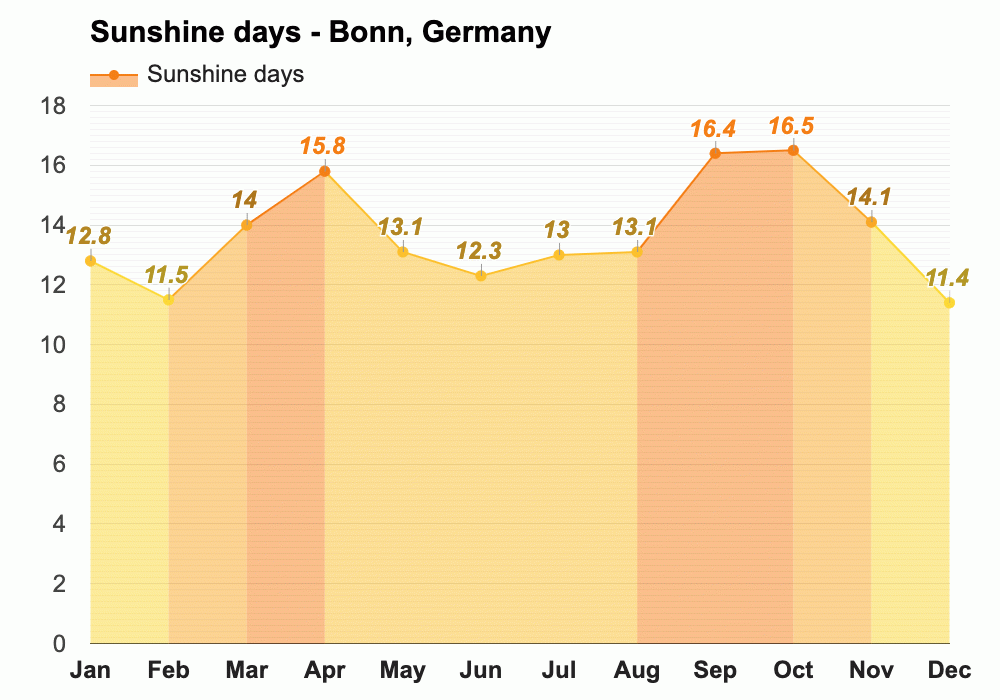
Is it hot in Bonn in August?
Yes, it can be hot in Bonn in August. The average high temperature in Bonn during August is 23.3°C (73.9°F), which can feel quite warm, especially during the middle of the day.
However, the temperature can also drop down to a low of 13.3°C (55.9°F), particularly at night, which can make it feel more comfortable.
Overall, August is considered a warm month in Bonn, but temperatures can vary depending on the time of day and weather conditions.
Packing for Bonn in August: What to bring?
If you’re planning a trip to Bonn, Germany in August, here are some items to consider packing:
- Light clothing: Bonn can be warm in August, so be sure to pack light and breathable clothing, such as t-shirts, shorts, and sundresses.
- Comfortable walking shoes: There’s a lot to see and do in Bonn, so be sure to bring comfortable walking shoes to explore the city.
- Rain jacket or umbrella: Although August is a relatively dry month in Bonn, there is still a chance of rainfall, so be prepared with a rain jacket or umbrella.
- Hat: A hat can provide additional sun protection and keep you cool on hot days.
- Sunglasses: Bring a pair of sunglasses to protect your eyes from the bright sunlight.
- Sunscreen: With an average of around 9 hours of sunshine per day, it’s important to protect your skin from the sun’s harmful rays.
- Swimsuit: If you’re visiting Bonn during a heatwave, consider bringing a swimsuit to take a refreshing dip in one of the city’s public swimming pools or nearby lakes.
- Adapter: If you’re traveling from outside of Europe, be sure to bring an adapter to charge your electronic devices.
- Portable charger: Bring a portable charger for your phone or other electronic devices, as you may be out and about all day and need to recharge.
- Camera: Bonn is a beautiful city with many historic landmarks and attractions, so don’t forget to bring a camera to capture the sights.
- Personal toiletries and medication: Bring any personal toiletries and medication you need, including any prescription medication, as well as a copy of your prescription in case you need a refill while traveling.
- Travel documents: Be sure to bring your passport, travel insurance, and any other necessary travel documents.
- Cash and credit cards: Bonn is a city with many shopping and dining options. Make sure you have some euros on hand, as not all places accept credit cards.
- Guidebook or map: Consider bringing a guidebook or map to help you navigate the city and plan your itinerary.
Overall, pack for warm, humid weather with the possibility of rain, and bring comfortable clothes and shoes for sightseeing.
Best Tours in Bonn in August
If you don’t want to explore Bonn on your own, it’s a good idea to book a guided tour. A guided tour can take you quickly to the most noteworthy attractions of the Rhine city and provide you with all the important information you need.
Below you will find the best tours for Bonn that are worth booking for your staying in Bonn in August.
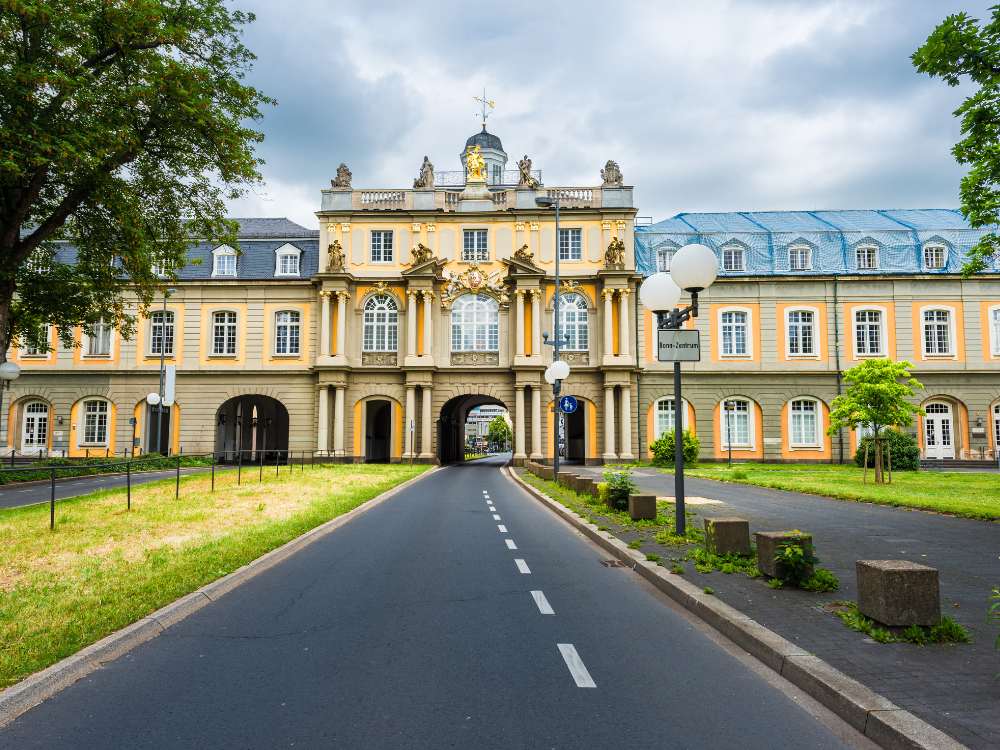
How to get around in Bonn in August?
If you are looking to make the most out of your experience in Bonn, the Bonn Regio WelcomeCard is the ultimate tip. This card allows you to explore not only Bonn but also the surrounding areas while saving money in the process.
With the Bonn Regio WelcomeCard, you can travel for free on public transport and gain free entry or discounted prices to many museums.
So, if you’re looking for a way to make your trip to Bonn budget-friendly, be sure to get your hands on the Bonn Regio WelcomeCard.
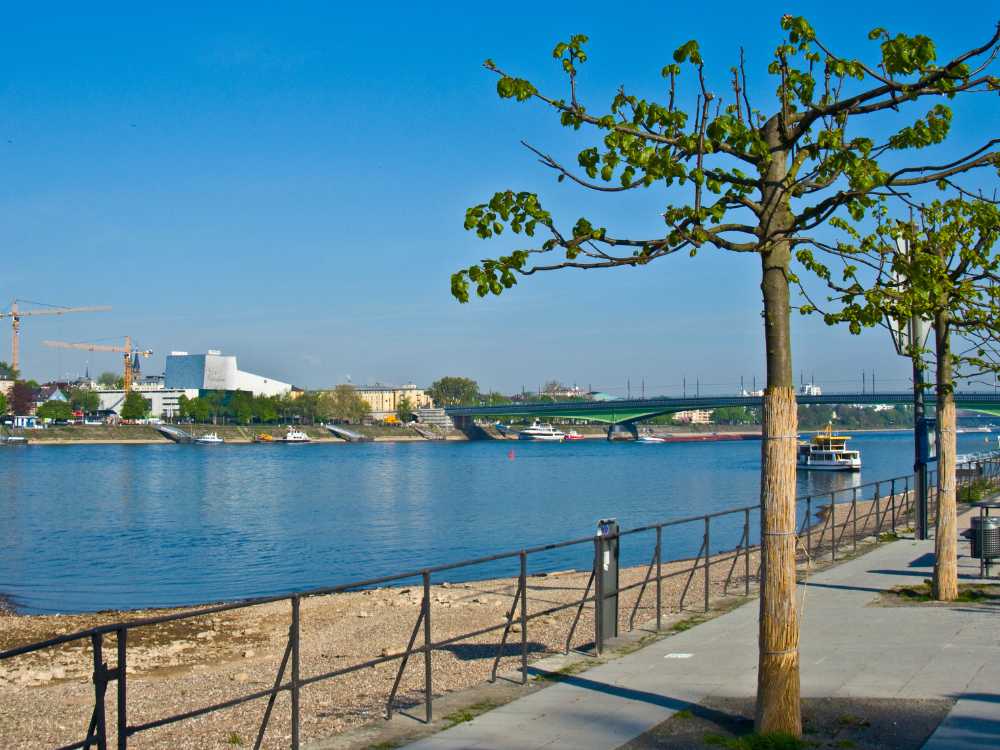
Best Things to do in Bonn in August
There are several things to do in Bonn in August. Here are a few suggestions:
1. Visit Münsterplatz
Münsterplatz is a lively square located in the heart of Bonn’s city center. It can be easily reached from the main train station by walking along Poststraße.
The square is one of the three largest pedestrian zones in Bonn, where you can find a hub of activity. It hosts various festivals and events throughout the year, such as the Bonn Christmas Market.
Münsterplatz is home to many historic buildings, including the former main post office, which is now a shopping center. One of the most notable landmarks on the square is the famous Beethoven statue, located in front of the former post office. The square is also home to several shopping centers.
Overall, Münsterplatz is a vibrant and bustling square with a rich history and plenty of things to see and do. It’s definitely worth a visit when exploring Bonn’s city center.
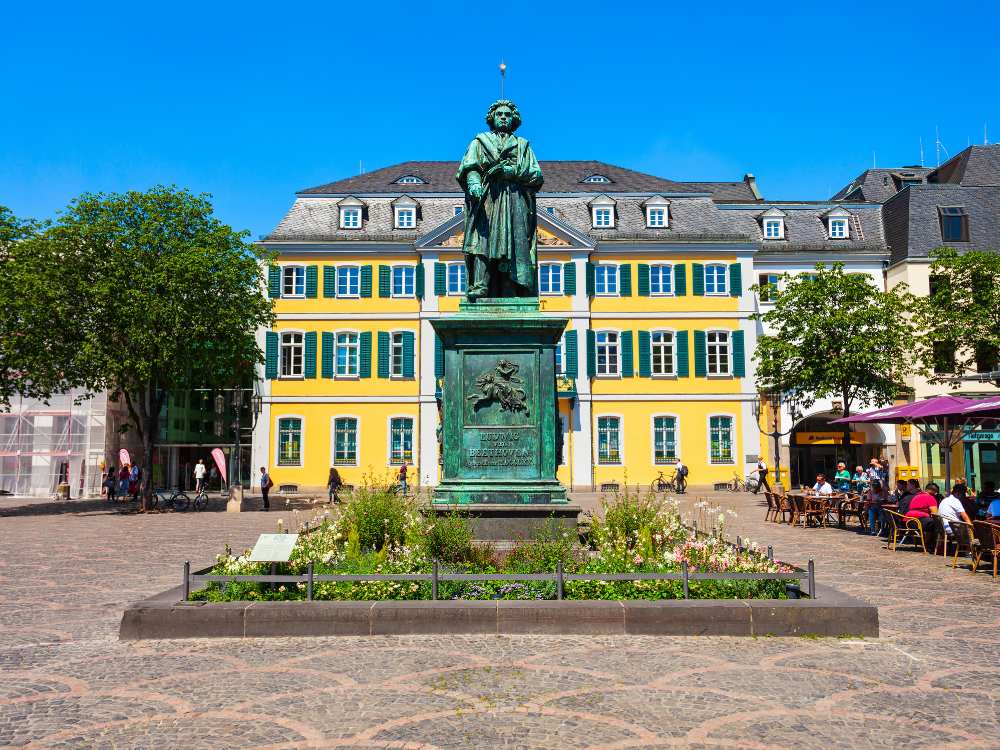
2. Go shopping on Wenzelgasse
Embarking on a shopping trip along Wenzelgasse in Bonn promises a delightful experience.
This charming street is renowned for its vibrant atmosphere and a plethora of shops that cater to various tastes and preferences. As shoppers stroll along Wenzelgasse, they are greeted by an array of boutique stores, trendy fashion boutiques, quaint cafes, and specialty shops.
The street exudes a distinct charm with its beautifully preserved architecture and a welcoming ambiance. From fashion enthusiasts seeking the latest trends to those in search of unique gifts and souvenirs, Wenzelgasse offers a diverse range of options.
With its central location and pedestrian-friendly environment, a shopping trip along Wenzelgasse in Bonn is a must for those looking to indulge in retail therapy.
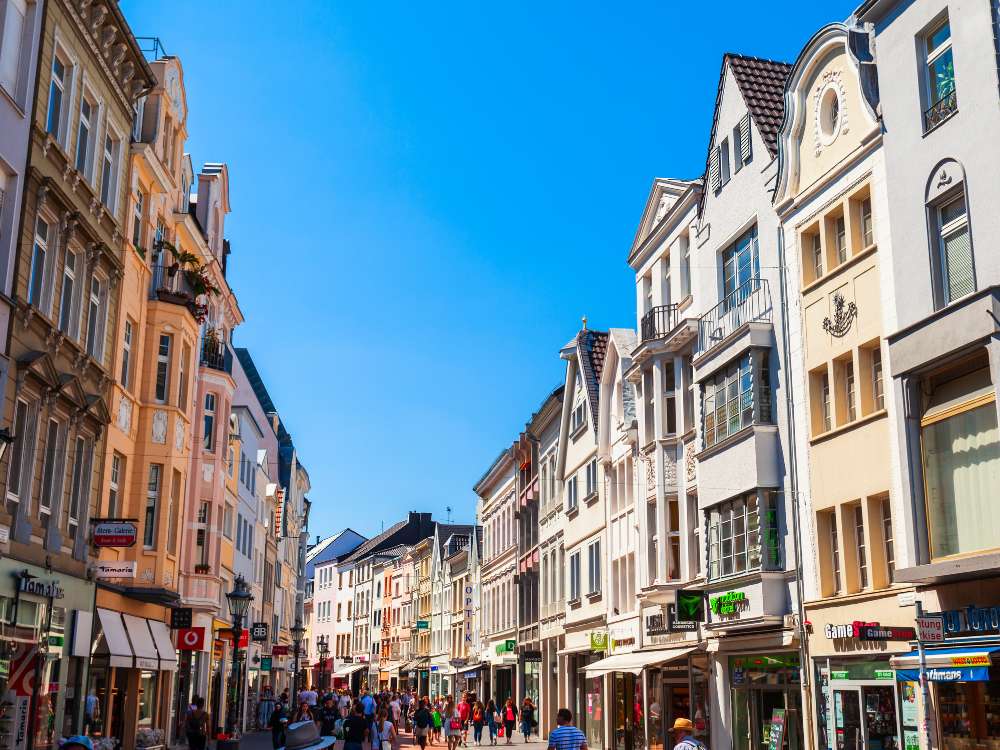
3. Stroll around Bonn University Main Building
The main building of Bonn University is a remarkable symbol of academic achievement. Originally, this architectural masterpiece served as the residence of the Cologne electors. Ever since it is a significant landmark located in the heart of Bonn.
Upon entering the building, you can explore various university departments and facilities. Notably, the interior of the building is characterized by its grandeur and elegance, featuring high ceilings and ornate decorations.
For those visiting Bonn, a tour of the main building and the courtyard garden is highly recommended. It offers a unique and authentic insight into the city’s rich academic and cultural heritage.
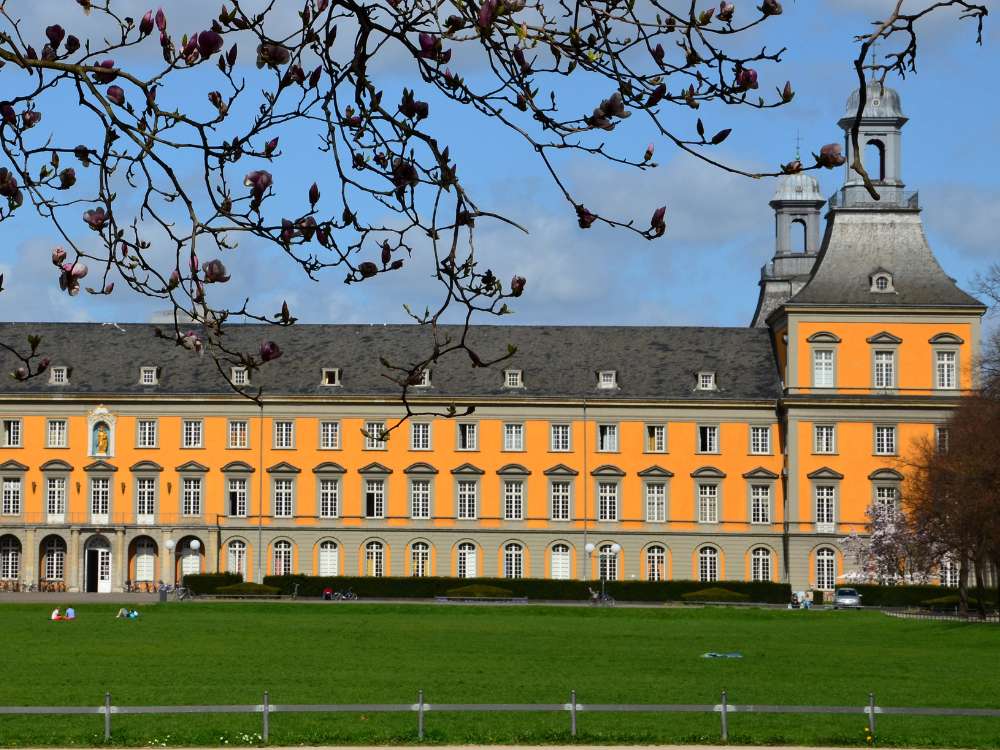
4. Visit Beethoven House
The Beethoven House houses a museum that celebrates the life and accomplishments of the legendary composer Ludwig van Beethoven. It’s situated in the heart of Bonn, in the same building where Beethoven was born in 1770. The museum has a vast collection of artifacts, manuscripts, and personal items belonging to the composer.
When visiting the Beethoven House, you can delve into the composer’s childhood, family life, and musical education. The museum also highlights Beethoven’s artistic progression, presenting his original scores, sketches, letters, and instruments.
The museum’s exhibits are interactive and captivating, giving you the opportunity to listen to Beethoven’s music and learn about his creative process. Furthermore, in addition to the permanent collection, the Beethoven House hosts temporary exhibitions, concerts, and other events throughout the year.
Overall, the Beethoven House is an enthralling and informative tribute to one of the most significant composers of all time.
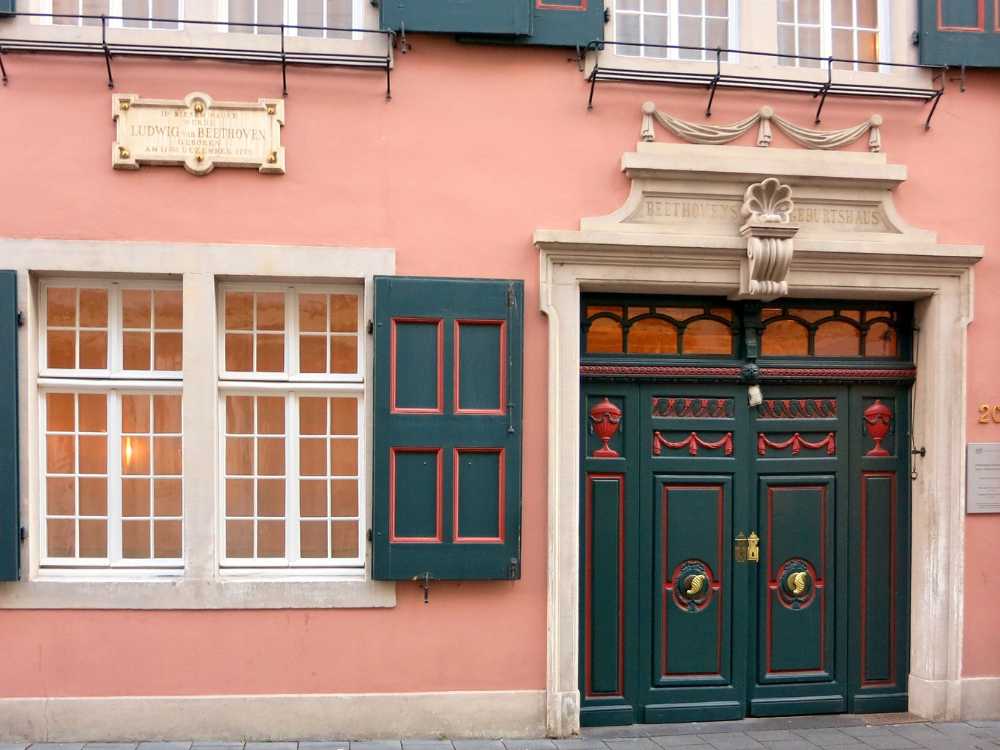
5. Explore German History in the House of the History of the Federal Republic of Germany
The House of the History of the Federal Republic of Germany is an exceptional museum that presents the political and societal evolution of Germany since 1945. The museum’s extensive collection of photographs, documents, films, and artifacts provides valuable insight into the country’s past.
What sets this museum apart is that there is no entry fee, making it accessible to everyone.
You can enjoy guided tours, special exhibitions, and educational programs suitable for all age groups here. The permanent exhibition covers topics such as the division of Germany, the Cold War, and the reunification of the country.
If you are interested in modern German history, a visit to this museum is a must and undoubtedly one of the top things to do in Bonn in March.
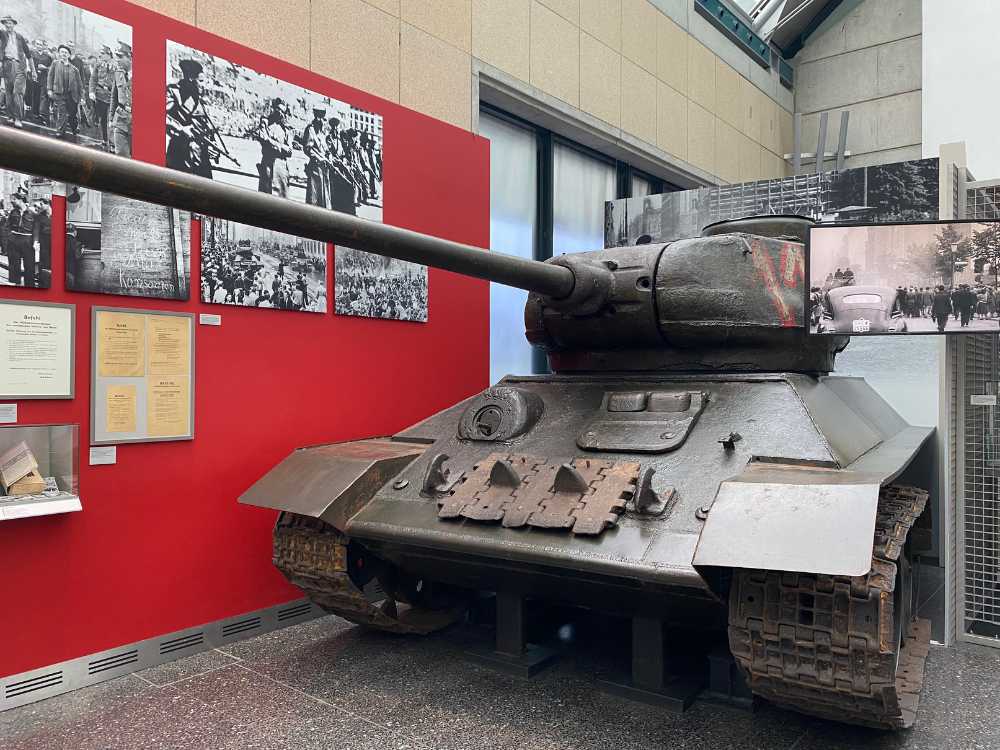
6. Visit Museum König
If you have an interest in science and nature, a visit to the Museum Koenig is a must-do when in Bonn in August. This museum boasts an impressive collection of exhibits that showcase animals, plants, and minerals from across the globe.
Visitors will surely be wowed by the museum’s large collection of dinosaur skeletons, which is one of the museum’s main highlights. Moreover, the Museum König offers interactive displays and exhibits that focus on topics such as biodiversity, ecology, and evolution.
All in all, the Museum König is a fascinating and informative destination that offers an enjoyable experience for individuals of all ages.
7. Stroll along Poppelsdorfer Allee
Poppelsdorfer Allee is a magnificent street in Bonn.
It originally connected the Electoral Palace to the Poppelsdorf Palace, spanning exactly one kilometer. Today, the city-side end is separated by the tracks of the Left Rhine railway line as Kaiserplatz, leaving a remaining stretch of 800 meters. The street is mostly lined with Gründerzeit-era buildings and adorned with horse chestnut trees.
Notably, it is a popular spot for walking, jogging, and cycling.
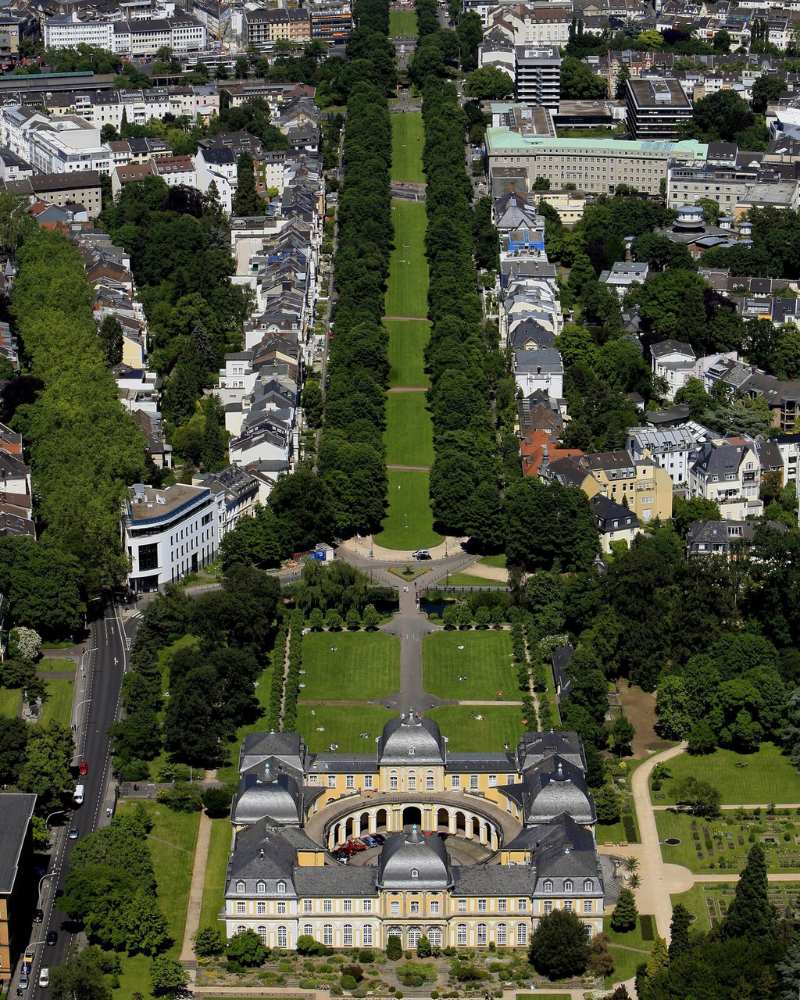
8. Visit Bonn’s Botanical Garden
The Botanical Garden in Bonn is a stunning oasis of natural beauty, boasting a diverse collection of plant species from around the world.
Located on the Poppelsdorfer Palace grounds, the garden covers an area of 12 hectares and is divided into different themed areas such as the Mediterranean Garden, the Alpine Garden, and the Japanese Garden.
You can explore the greenhouses, stroll through the meadows and woodlands, and admire the wide range of flora on display. In addition to being a popular destination for tourists, the Botanical Garden also serves as a research facility for the University of Bonn, making it an important center for botanical science.
Admission to the garden is free, making it an affordable and enjoyable way to spend a day in Bonn.
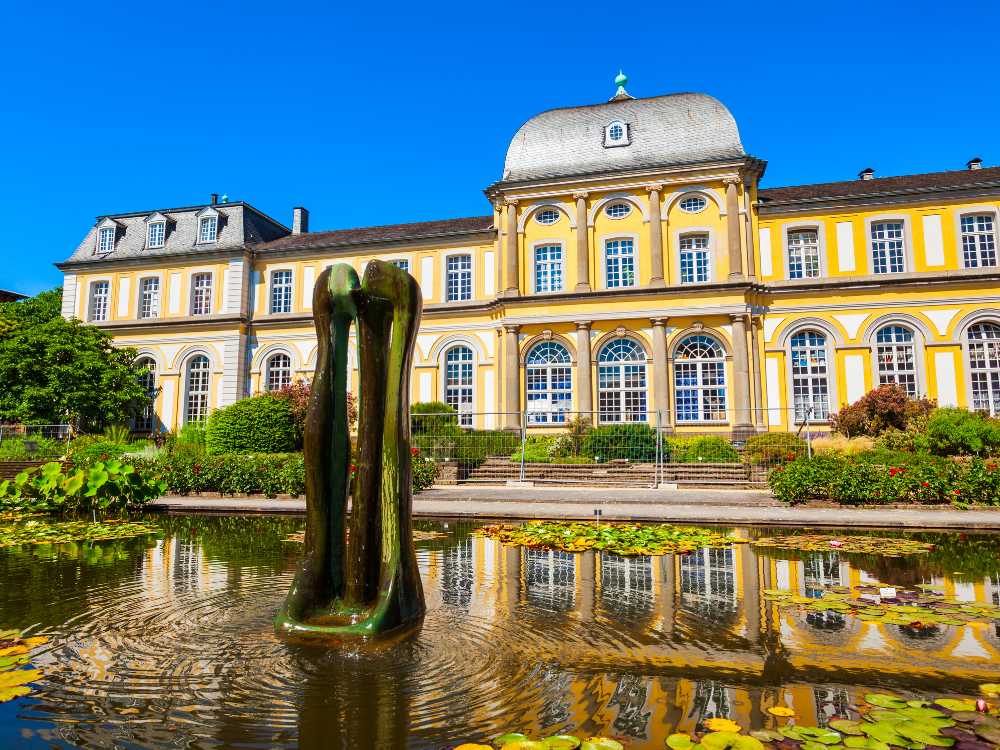
9. Admire Old Houses in the district of Südstadt
The district of Südstadt is known for its many historic buildings and picturesque streets. Located south of the city center, it is a popular residential area with a mix of old and new buildings.
Many of the streets are lined with beautiful old trees and the architecture ranges from Art Nouveau to classical styles. Some of the buildings have been converted into apartments, while others are still used as offices or businesses.
The district has a lively atmosphere with many cafes, restaurants, and shops, making it a popular destination for visitors and locals alike.
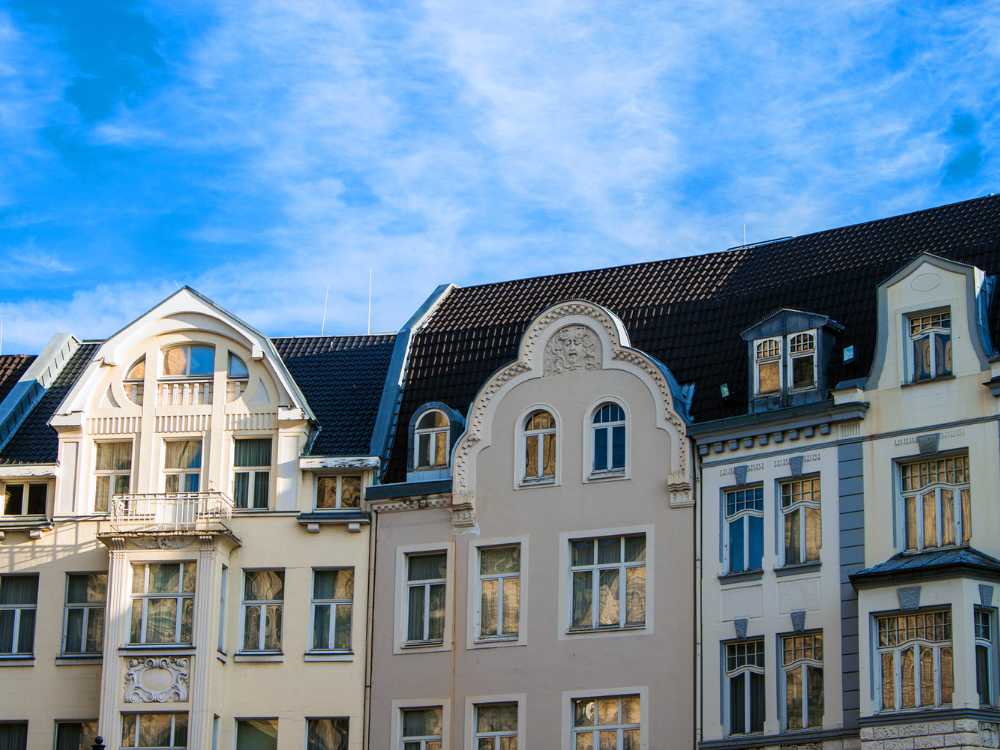
10. Stroll through Bonn’s Flea Market
The flea market in Bonn’s Rheinaue is renowned as one of the largest flea markets in Germany. Taking place from April to October, this bustling market sets up its stands every third Saturday of the month.
Spanning a vast area, the flea market attracts both locals and visitors with its wide range of vendors offering an array of goods. From antiques and collectibles to vintage clothing, books, and household items, the market caters to diverse interests and tastes.
Shoppers can enjoy the thrill of treasure hunting while exploring the picturesque setting of Rheinaue. With its vibrant atmosphere, the flea market in Bonn’s Rheinaue provides a unique and enjoyable experience for bargain hunters, collectors, and those looking for a leisurely weekend activity.
11. Drink a Beer at Alter Zoll Beer Garden
The Alter Zoll in Bonn is a historical site that was part of the city’s fortification. It is located on the hillside of the Rhine riverbank and is currently owned by the University of Bonn. The site is a popular destination, as it offers a stunning view of the Rhine and the surrounding areas.
Additionally, the Alte Zoll features a popular beer garden, where you can relax with a cold drink and enjoy the scenery. Whether you’re interested in history, nature, or simply looking for a place to unwind, the Alte Zoll is definitely worth a visit.
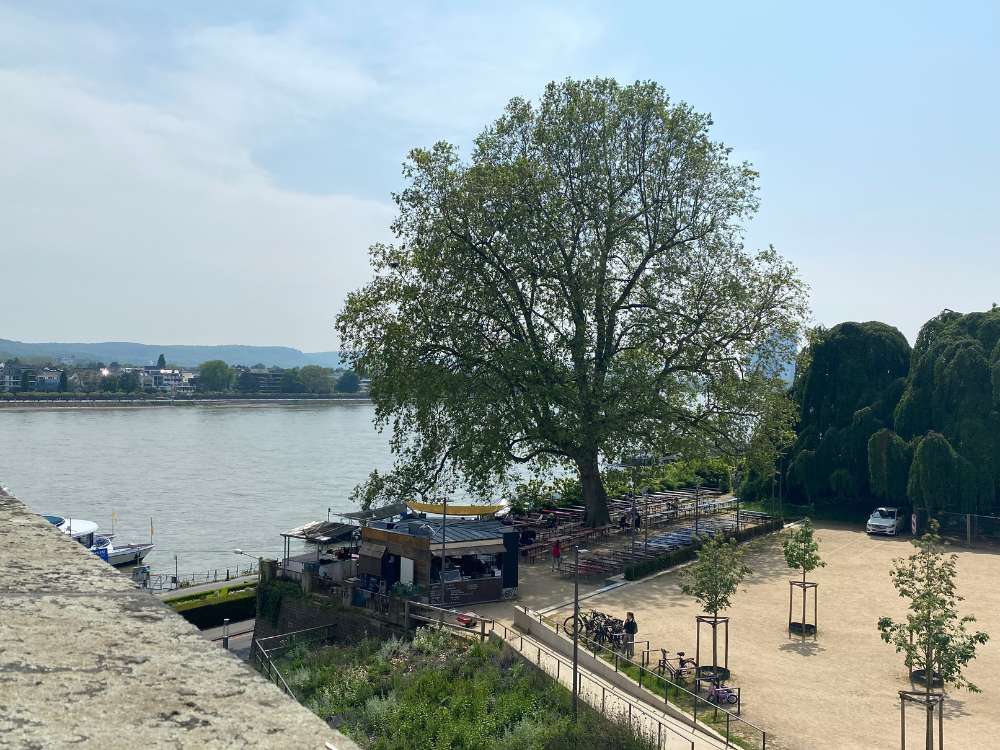
12. Enjoy sweets at Haribo Factory Outlet
Calling all candy lovers! If you’re in the Bonn area, the Haribo Factory Outlet in Friesdorf is an absolute must-visit.
Here, you’ll find an amazing assortment of Haribo sweets, all at discounted prices. From the classic gummy bears to mouth-watering licorice, the store’s colorful aisles are bursting with sweet treats that will satisfy any sweet tooth.
But that’s not all! The outlet also offers factory seconds, which means you can snag your favorite Haribo candies at even lower prices. It’s the perfect spot for a fun and affordable shopping trip with your friends or family.
Don’t miss out on this one-of-a-kind candy shopping experience – head to the Haribo Factory Outlet in Bonn Friesdorf today!

Holidays & Festivals in Bonn in August
August is a lively month in Bonn, with several festivals and events that bring the city to life. While there are no public holidays in August, there are still plenty of reasons to celebrate.
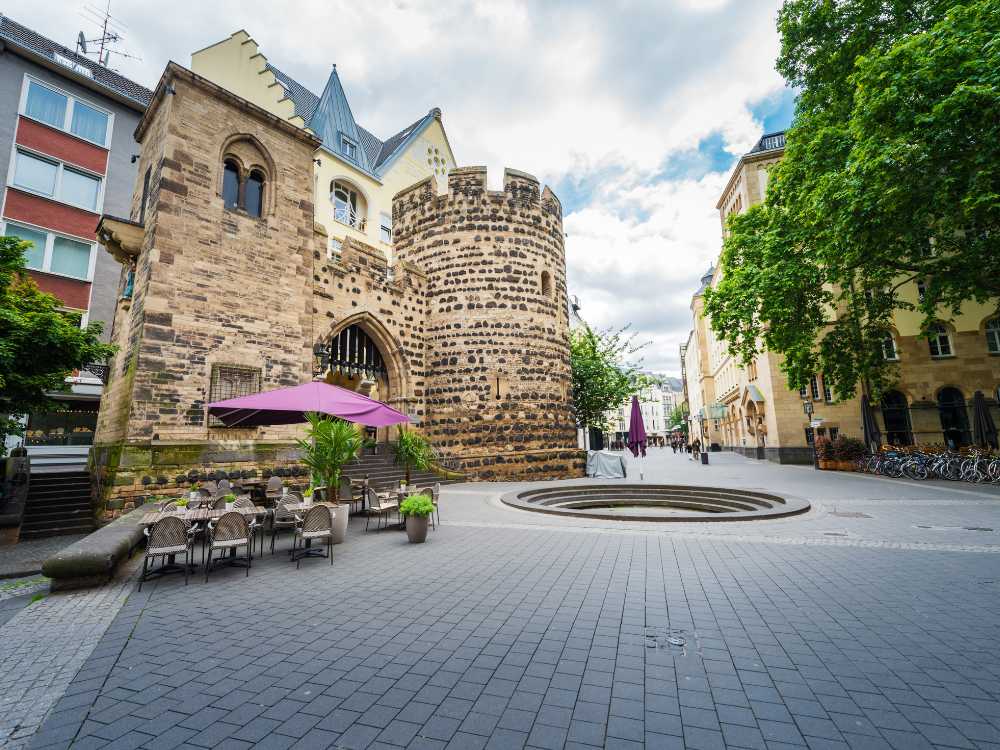
Bonn in August: Travel Guide
Is Bonn good to visit in August?
Yes, Bonn can be a great place to visit in August. The weather is generally warm and sunny, with plenty of opportunities to enjoy outdoor activities such as visiting parks or walking along the Rhine river.
What are the best places to stay in Bonn in August?
If you’re planning to visit Bonn in August, there are numerous accommodation options available to suit a variety of budgets and preferences. From hotels and guesthouses to apartments and hostels, there is something to suit every traveler’s needs.
What is the best time to visit Bonn Germany?
The best time to visit Bonn, Germany, depends on your personal preferences and interests. The city has a temperate climate, with mild temperatures and occasional rainfall throughout the year. The peak tourist season in Bonn is during the summer months of June to August when the weather is warm and sunny, and there are many outdoor events and festivals.
However, spring (March to May) and autumn (September to November) are also excellent times to visit Bonn. During these months, the weather is milder, and there are fewer crowds, making it easier to explore the city’s attractions at your own pace. Plus, in the spring, you can witness the famous cherry blossoms in full bloom, which is a sight to behold.
Winter (December to February) can be quite cold in Bonn, with occasional snowfall. However, if you don’t mind the cold weather, you can take advantage of the quieter season and enjoy the city’s Christmas markets and winter festivities.
Overall, the best time to visit Bonn depends on your interests and preferences. Each season offers something unique to see and experience in this beautiful German city.
Is August a good time to visit Germany?
Yes, August is generally a good time to visit Germany, depending on your travel preferences. Here are some factors to consider:
- Weather: August is usually a warm and sunny month in Germany, making it a great time to explore the outdoors and visit attractions that are open-air. However, it can also be humid and prone to rain, so pack accordingly.
- Crowds: August is peak travel season in Germany, so popular tourist destinations can be quite crowded, especially on weekends and during major events.
- Festivals and Events: August is a busy month for festivals and events throughout Germany.
- Accommodation and Prices: Due to the high demand, accommodation prices can be higher in August, so it’s a good idea to book well in advance. However, there are usually plenty of options available for all budgets.
Overall, August is a great time to visit Germany if you’re looking for warm weather, outdoor activities, and festivals and events. Just be prepared for crowds and higher prices in popular tourist destinations.
What is the coldest city in Germany?
The coldest city in Germany is generally considered to be Munich, which is located in the southeast of the country. Munich has a continental climate with cold winters and relatively warm summers, with average temperatures in January ranging from -1 to 4 degrees Celsius (30 to 39 degrees Fahrenheit).
However, there are other regions in Germany that can even be colder in the winter months. The village of Kühnhaide, which is in Saxony, holds the record for the coldest temperature ever recorded in Germany.
On January 24, 1940, the temperature in Kühnhaide dropped to a bone-chilling -37.8 degrees Celsius, making it the coldest recorded temperature in Germany to date. Despite its small size, Kühnhaide has gained notoriety for this extreme weather event.
Frequently Asked Questions
Where is Bonn in Germany?
Bonn is a city located in western Germany, in the state of North Rhine-Westphalia. It is situated on the banks of the Rhine River and is the fourth largest city in Germany by population.
How to get to Bonn Germany?
Bonn is well-connected to other parts of Germany and Europe, and there are several ways to get there. Here are some options:
By Plane
Bonn is served by three major airports: Cologne Bonn Airport, Düsseldorf Airport and Frankfurt Airport.
Cologne Bonn Airport is the closest airport to Bonn, located just 20 kilometers away. From the airport, you can easily reach Bonn by train or taxi. The train station is located directly outside the terminal building, and you can take a regional train to Bonn Hauptbahnhof (the main train station in Bonn) in just over 20 minutes. Taxis are also available outside the terminal, and the ride to Bonn takes approximately 30 minutes.
Düsseldorf Airport is located about 85 kilometers north of Bonn and is well-connected to the city by train, bus, and taxi. The journey takes approximately 1.5 hours and there are several direct train connections daily.
Frankfurt Airport is located about 170 kilometers away from Bonn, but it offers many more international flight options. From the airport, you can take a high-speed train (ICE) to Bonn Hauptbahnhof in approximately 1.5 to 2 hours. Alternatively, you can rent a car or take a taxi, which takes around 2 hours, depending on traffic.
By Train
Bonn has two major train stations: Bonn Hauptbahnhof (Central Station) and Bonn-Bad Godesberg. Bonn Hauptbahnhof is located in the city center and is served by many regional and national trains. Bonn-Bad Godesberg is located in the suburb of Bad Godesberg and is primarily served by regional trains.
The city is well-connected to other parts of Germany and Europe by high-speed trains, including the ICE. You can check schedules and buy tickets online through the German railway company Deutsche Bahn.
By Bus
Several bus companies offer services to Bonn from other German and European cities, including Flixbus and Eurolines. The bus station is located near UN Campus.
By Car
If you’re driving, Bonn is easily accessible via the German autobahn network. However, keep in mind that traffic can be heavy, and parking in the city center can be difficult and expensive.
Is there Uber in Bonn?
Yes, Uber is operating in Bonn.
Initially launched in Berlin in 2013, Uber faced several legal and regulatory challenges before expanding its services across Germany. The company finally launched its basic and premium ride options in Bonn in 2021, and it has since grown its operations in the city with more drivers and riders using the platform.
Despite some opposition from taxi drivers and industry groups, many customers have welcomed the competition and flexibility that Uber offers. For visitors to Bonn, Uber is a convenient and cost-effective mode of transportation, especially for those who are unfamiliar with the local public transportation system or prefer the comfort and privacy of a private ride.
Is Bonn safe for travelers?
Bonn is generally considered a safe city for travelers. The crime rate in Bonn is low compared to other major cities in Germany and Europe, and visitors can usually move around the city without any major safety concerns.
However, as with any city, it’s important to take certain precautions to ensure your safety:
Be aware of your surroundings, especially in crowded areas and public transportation!
Keep an eye on your belongings and avoid carrying large amounts of cash or valuables with you!
Stick to well-lit and busy areas at night, and avoid walking alone in deserted areas!
Be cautious of pickpocketing and other petty theft, especially in crowded areas like tourist attractions and public transportation!
Follow basic traffic rules and be aware of bicycles and trams, which are popular modes of transportation in Cologne!
Overall, Bonn is a welcoming and safe city for travelers, but it’s always a good idea to take basic precautions to ensure your safety and security.
Can you drink tap water in Germany?
Yes, tap water in Germany is generally safe to drink. Germany has strict regulations regarding water quality and treatment, and the vast majority of tap water in the country is of high quality and safe for consumption.
In fact, in many parts of Germany, tap water is considered to be of higher quality than bottled water. It is also much cheaper and more environmentally friendly to drink tap water, as it eliminates the need for single-use plastic bottles.
Overall, drinking tap water in Germany is generally safe and a great way to stay hydrated during your travels.
If Bonn in August isn’t for you….
After reading this, you might not want to visit Bonn in August after all.
If so, check out the articles linked below about visiting Bonn during another month of the year.
- Bonn in January
- Bonn February
- Bonn in March
- Bonn in April
- Bonn in May
- Bonn in June
- Bonn in July
- Bonn in September
- Bonn in October
- Bonn in November
- Bonn in December
- 23 Best Things to Eat at Cologne Christmas Market [Locals Pick] - 18. October 2023
- 15 Things to Do in Cologne at Christmas - 11. October 2023
- 20 Unusual Things to do in Cologne Germany - 6. September 2023
